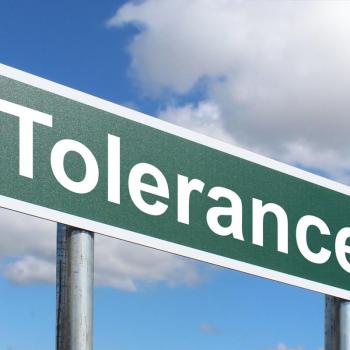
“Until they pay taxes they should have no say in any political agenda!”
“I think it’s time to revoke their tax exempt status. It’s clear they’re mixing politics and religion.”
“The LDS Church is a religion and should have ZERO say in state law. I heard about this thing once… I think it was called separation of church and state.”
“If they’re actively involved in government and policy I don’t feel they should have tax exempt status. It’s just an opinion, and one I think many share.”
Every time the Church speaks out about an issue that is also being debated politically, the responses are predictable.
Can a church legally influence politics? As a society, do we want groups that don’t pay taxes to have political say? Should religions be able to lobby politicians?
I admit that “if they don’t pay taxes they shouldn’t have a say,” does have an undeniable populist appeal to it. But it crumbles under even the slightest of analysis.
Is it illegal?
Does a nonprofit organization lose its tax exempt status just because it starts to lobby politically? No.
Any non-profit can lobby for political issues. Political influence can’t be the sole mission of the organization, but it can be a part of what they do.
There is an IRS rule popularly called “The Johnson Amendment” which says a 501(c)(3), which is a type of non-profit organization that includes churches, can’t endorse political candidates. But it’s a rule that is constitutionally questionable and is currently unenforced.
And while it’s a rule that many churches break regularly, The Church of Jesus Christ is very particular about not breaking it.
Sam Brunson at By Common Consent has a much more thorough look at whether or not the Church’s lobbying was legal.
Non-Tax Paying Organizations Politically Lobby All the Time
I wonder if those who are upset about a non-tax paying organization meeting with lawmakers is similarly upset when the Friends of the Public Library advocates for increased library funding.
Are they upset when the National Association for the Advancement of Colored People or Susan G. Komen Foundation advocates for their causes?
If a city is considering closing a local bird sanctuary, do they expect the local Audubon society to butt out? What about labor unions?
Perhaps their argument isn’t really about paying taxes. Perhaps what they want is for the government to target religious non-profits to be treated in a way that is actually unique from the way the government treats every other non-profit organization.
Does it Matter if They Do Pay Taxes?
The Church of Jesus Christ actually includes many entities that do pay taxes. Does this mean that they should have special permission to speak to politicians?
Would we prefer a society where churches that are big enough to invest their funds into businesses that pay taxes can petition lawmakers while small community churches must remain silent?
In the past, the American Association for Retired Persons (AARP) has been under fire because of how much money they make selling products to their members. Do we think that the AARP should be able to fight for Medicare, but only if they sold enough car rentals and mutual funds that they lost their non-profit status?
Once we start looking at who actually is and isn’t paying taxes, it becomes clear paying taxes is not really a useful measure for who should be participating in the public sphere.
Do We Want Only Businesses Lobbying?
What if these proponents of “no taxes, no say” got their way? At that point, the only organizations that could lobby would be businesses. Many of which are under a legal duty to only act in their best financial interest.
Do we want to live in a society where the only groups who can legally influence lawmakers are those whose goal is to make money? Making money is the only factor in determining what makes something a non-profit organization. But I hope that making money is not the only factor in determining what kind of society we create.
Does it Matter What They’re Lobbying About?
In 2015, The Church of Jesus Christ was vocal about another matter of Utah politics. They wanted to pass a non-discrimination bill that would protect LGBT+ citizens in Utah. Several previous efforts had stalled out, so The Church used its influence to help pass a bill.
I don’t remember a lot of outcry about the Church’s political influence then.
In January of this year, when the Church released a statement urging Congress to protect “Dreamers” from deportation, I don’t remember a lot of outcry about the Church using its political influence.
It seems to me as though the call to “stay out of politics” really only happens when the Church takes a position that is at odds with those who otherwise have negative feelings towards the Church.
Groups are Just People
And ultimately The Church of Jesus Christ is made up of people. Many of them citizens of the United States, or in this case Utah. Many of them tax paying citizens.
Should those people be able to organize in a group based on shared principles to try and make a difference in the world, including in politics?
This is the freedom of association. It is one of the most treasured freedoms citizens have. And taking away the freedom of association just because the principles they care about are religious is deeply backward thinking.
We should want religious people bringing their values, and their thoughts to politics to try to make our country better. And the foundation of political influence is organizing in groups. But at the very least we should at least recognize that those we disagree with have the fundamental right to participate in politics.
So What Do Opponents Really Mean?
It’s clear that when people say that the Church shouldn’t participate in politics because they don’t pay taxes, they can’t possibly mean that. So much of our political discourse is facilitated through groups that do not pay taxes.
And these same people don’t seem to have a problem with the Church’s political advocacy for progressive positions.
So what do they mean?
Ultimately all these statements are is thinly veiled theophobic bigotry. They don’t usually like what religions stand for and rather than compete with them in the public square on their merits, they’d rather say, “Go away, we don’t like your kind here.”
Fortunately, despite the wishes of those who hide behind the weak “no taxes, no say” argument, not only is it legal for religious organizations to occasionally take moral stands on political issues, but the right to do so is so legally ingrained that it is at no great risk.













